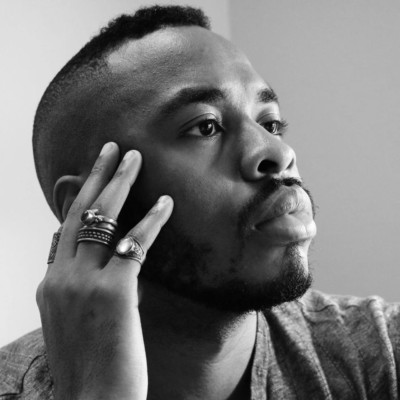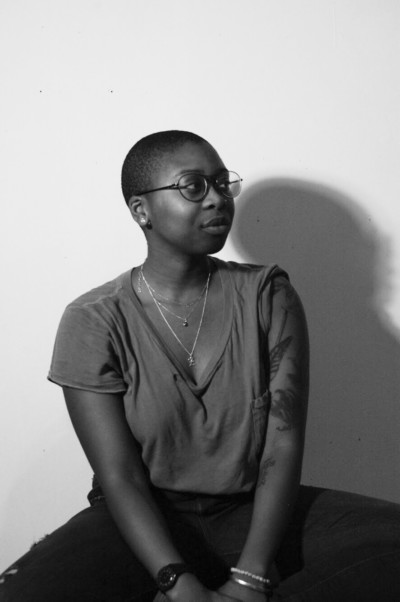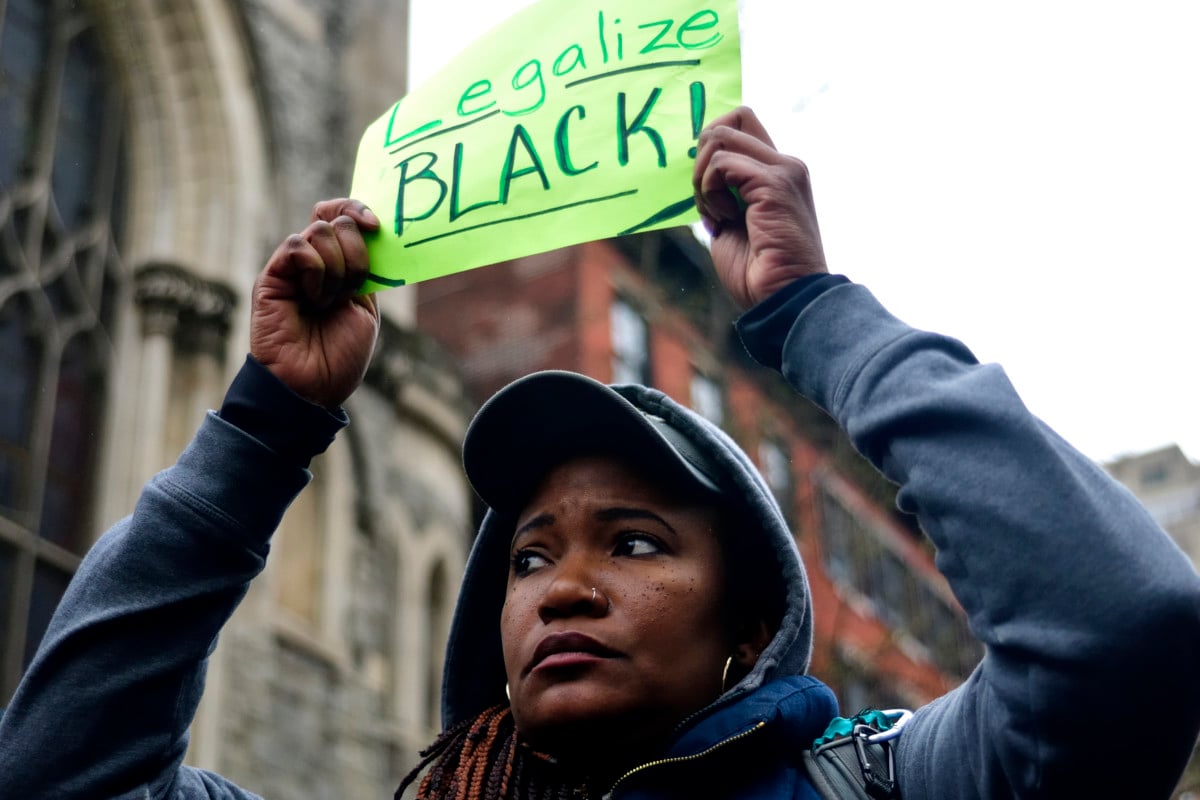Part of the Series
Progressive Picks
William C. Anderson and Zoé Samudzi have written a powerful and necessary book about anarchism and Blackness, Black liberation and resistance that provides a crucial intervention in the dominant landscape of reformist solutions to structural oppression. As Black as Resistance: Finding the Conditions for Liberation provides insightful analysis about the condition of Black life in the United States, settler colonialism, self-defense and what revolutionary resistance can look like. In four concise chapters (“Black in Anarchy,” “What Lands on Us,” “Grounds to Defend On” and “From Here on Out”), Anderson and Samudzi explore the anti-Blackness that is the foundation of the United States, argue that addressing and fighting back against anti-Black oppression cannot be rooted in settler colonial logic, discuss the history of radical Black self-defense, and caution us against the continued co-optation of radical movements by politicians, philanthropy and celebrities.
Anderson and Samudzi write: “Removing oppression, not reforming it, demands the creation and radicalization of new dissidents.” As Black as Resistance: Finding the Conditions for Liberation is an important guide for understanding the roots and ideologies embedded in the latest racist incidents that make the news, what solidarity can look like between different communities experiencing state violence and how we can resist structural oppression outside of the designated electoral system.
Anderson and Samudzi spoke with Truthout about the importance of their new book in this political moment, white people being part of the policing structure and how resistance starts inside of us.
Tasasha Henderson: How did you two come together to write As Black as Resistance: Finding the Conditions for Liberation?
William C. Anderson: Zoé and I came together because we were both frustrated with the state of things on the left, or lack of one in the US. One of the good things about social media is that we can build valuable relationships and extend our understanding of community in really cool ways. We started out talking on the phone every so often about politics, and we related around our hopes and ideas. We often found ourselves agreeing so much that we felt encouraged to write something together. It took years before we actually followed through on that, but when we did, the result was an essay called “The Anarchism of Blackness” that was published in ROAR Magazine. That essay was the manifestation of many conversations about Blackness and anarchism, and the need for a real opposition in the US. The reception of that essay was really amazing, and we were actually overwhelmed by how much love people showed us. AK Press reached out to us to expand that essay into an entire book. We were actually already planning some follow-up essays, so this is the result of several writings, conversations and ideas combined over time.
What makes this book important in this political moment?

Anderson: This book is important because the political moment we’re in calls for a radical program. We’re hoping to attend to the truths of those who came before us and make sure that we continue pushing. Ultimately, that pushing is what can change our world, and we all have our respective ways of pushing. This book is an offering from us in that regard.
Zoé Samudzi: This book is important in this political moment because I think people are growing increasingly frustrated with the Democrat and Republican duopoly. There’s a frustrating lack of choices, but we’re locked into an electoral system where the “best” option is a party that won’t actively antagonize communities of color and marginalized communities but won’t necessarily act in their best interests because they are still invested in maintaining white supremacist systems.
I think that our book is helping to offer a different way of understanding this country outside of electoral politics that push a civic duty to better this country as though it is the responsibility of Black voters to fulfill the impossible mission of voting our way out of white supremacy. I think this book helps to clarify where and how Black people exist in the United States, and what the United States is honestly constructed upon.
After we cultivate a more clear understanding in this country’s rootedness in anti-Blackness and Indigenous genocide/land expropriation and what this means materially, then I think we can be more strategic about our liberation politics, as opposed to responding to every awful thing President Trump is doing as though the foundational politics of this country don’t permit the creation of this unique fascistic moment.
The photos that precede each chapter are striking. What was the inspiration behind including them?
Anderson: Zoé and I are both lovers of art, and AK Press is a very creative publisher. Their innovativeness lies in their aesthetics as well as what they publish. Since we both discuss the world of art on the regular in personal conversations, we thought it made sense to incorporate some of our own photos into the book. Those photos have personal meanings and purposes in that text. Basically, we wanted the book to be visually stimulating as well as convey artistic and political expression through photography.

Samudzi: The photographs that I took are representative of surveillance (the sign) and refusal (stepping on the flag). The flag photograph is a particular favorite of mine because it’s a photo of Ra Malika Imhotep, a brilliant scholar and friend. Last year, I went to a 4th of July party and there were Black folks (lots of queer Black folks) laughing, dancing and stepping on American flags, setting them on fire and twerking on the ashes. It was performative as hell, with people (myself included) posing for Instagram photos. But there was something striking to me about the idea of Black joy and celebration being represented by the destruction of symbols of empire (as a hopefully temporary stand-in for the destruction of empire itself!). It was the first time I had ever set fire to a flag of any kind, and I had the most exhilarating high of cathartic energy. It felt like an allegory for some kind of freedom. I’ll never forget that.
In the second chapter, “What Lands on Us,” you state that, “White people are not simply those the state protects and serves; white people are themselves a part of the policing structure.” This brings to mind the recent news stories about white people calling the police on Black people for existing in public. Are these stories examples of white people being a part of the policing structure? What are other examples of this, and what does resistance against it look like?
Anderson: White supremacy absolutely prioritizes whiteness and is enforced through all our institutions. Policing is a way to detain, brutalize and execute Black people in the service of white supremacy. This is why we’re seeing white people call the police on Black people for anything, and this is why we have always witnessed this sort of behavior.
The police are not here to help liberate us or make our society more peaceful. Under the constraints of the oppression we see daily, “peace” is defined by this society as racial capitalism maintaining its order. That order is misery for so many of us, but it translates into power when white people utilize it to cause harm to those they oppress. It doesn’t matter if white people want access to white power or hold conscious feelings of bigotry; this is a white supremacist society set up to benefit them.
Resistance against this looks like us actively working to challenge the white supremacist state and undermine ideological whiteness whenever and however we can. This takes more than “diversity” and representation because you’re not going to change the police by having more Black officers who are going to operate according to the standards of the force. Instead, we need to be thinking about how we can push this society to upend and abolish the unacceptable that’s been accepted for far too long. White supremacist structures shouldn’t exist, and they don’t need to be negotiated with. We shouldn’t feel forced into giving legitimacy to anything that’s never dignified us with the right to exist in peace.
Samudzi: Absolutely. Frank B. Wilderson III has a paper where he writes that, “White citizens frequently deputize themselves in the name of law and order.” That also evokes what Dr. Martin Luther King Jr. wrote in his 1963 “Letter from Birmingham Jail” where he says that the white moderate is “more devoted to ‘order’ than to justice.”
White people understand very well that “order” refers to a white supremacist order that can only ever understand Black people and Black freedom as a threat to their existence because whiteness has been constructed by Black chattel enslavement. Calling the police on Black people for grilling at the lake or sleeping in a common room or existing in public space is not only evoking this known function of the police, but it’s just short of being some kind accessory to assault or attempted murder, given the frequency with which Black encounters with the police end in some kind of violence or death.
An alternative to white people calling the police on Black people for issues or conflicts that could easily be resolved by a conversation (or, sometimes, aren’t even “conflicts” at all, but objections to Black people existing in public spaces), is to promote frameworks of community safety and transformative justice that encourage people to learn how to de-escalate issues without relying upon police intervention and mediation. Resistance to this self-deputization could also just look like minding your own business.
In the chapter “What Lands on Us,” you explain what settler colonialism is and how it is the foundation of the United States and Israel in particular. With the Trump administration’s decision to move the US embassy from Tel Aviv to Jerusalem and Israel’s violent repression of Palestinian protesters, what are the connections between the two countries as far as policing and settler colonialism? How does solidarity with the movement for a free Palestine contribute to not only Black liberation but liberation of all oppressed people?
Samudzi: The decision to move the US embassy from Tel Aviv to Jerusalem was a cruel one, not only because it was a callous middle finger to Palestinian solidarity, but also because it was positioning Palestinians to be harmed and repressed by the state through a provocation of the protests that inevitably accompanied the embassy’s opening.
The connections transcend the two countries’ shared repressive settler colonial and anti-Indigenous ideologies. The Israel Defense Forces also regularly train US law enforcement agencies (including in Ferguson, Baltimore, New York) on anti-terror and crowd-control methods that had been perfected and field tested on Palestinian people. Israel is also the largest drone exporter in the world, and the United States and Israel frequently exchange drone technology — we’ve seen the extent of US dependence upon military drone technology as an alternative to the physical presence of troops. We see how these two countries share in and are mutually invested in the maintenance of settler colonial structures that are built upon ethnonationalism and the violent suppression of racialized people, carcerality, settlement and occupation.
The global solidarity movement for a free Palestine is married to the Black liberation movement not only because there are Black Palestinians, but because Black Americans and Palestinians exist in systems that share logics and tools for repression, and the spectacles of violence against our communities play important roles in enforcing white supremacist racial orders in our respective states. The movement for a free Palestine is also married to the fight for Indigenous nationhoods and sovereignties within the United States and other settler states, (e.g. Canada, Australia, New Zealand) and all anti-colonial movements abroad, because if the material conditions for settler states to enact violence against Indigenous and non-Indigenous marginalized communities cease to exist, then the global structure of racial capitalism is crumbling and all of our fates are bound up in its continued existence.
In the last chapter, “From Here on Out,” you end the book with a powerful message of the importance of transformative change. You state that, “Meaningful steps towards liberation do not have to be dramatic.” What are just a few examples of those meaningful steps?
Anderson: A lot of the work we need to be doing starts inside of us. The way we treat others and maintain relationships has everything to do with the progress we make toward changing things for the better. These aren’t necessarily actions that are always hugely visible or dramatic in the way that people imagine revolutionary changes to be.
We live in a society that’s so media-driven that sometimes people expect far too many things to be cinematic. This does a disservice because sometimes the things that should be deeply upsetting are so insidious that they appear quite calm or normal. If the change we need is almost unimaginable and the brutality we don’t deserve looks regular to us, we’re in an extremely dangerous situation. We can take meaningful steps to point out that things are egregious are absolutely not normal. The police are not normal; imperialism is not normal; capitalism is not normal; misogyny is not normal; the United States is not normal and so on and so forth.
We have a problem that needs solving and a lot of it is going to take us being involved in undermining what’s seemingly static but shouldn’t be. That can look like conversations with friends, family and community members just as much as it looks like actively pushing for abolishment through direct action. However, there has to be balance. We should have a wide array of tactics to challenge the power structures holding us back and not be too dependent on one thing or another.
Join us in defending the truth before it’s too late
The future of independent journalism is uncertain, and the consequences of losing it are too grave to ignore. To ensure Truthout remains safe, strong, and free, we need to raise $43,000 in the next 6 days. Every dollar raised goes directly toward the costs of producing news you can trust.
Please give what you can — because by supporting us with a tax-deductible donation, you’re not just preserving a source of news, you’re helping to safeguard what’s left of our democracy.
